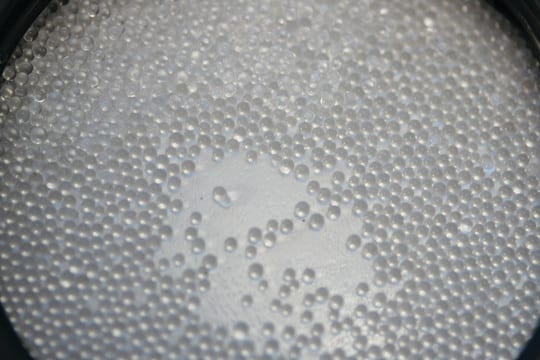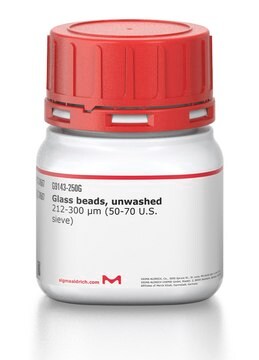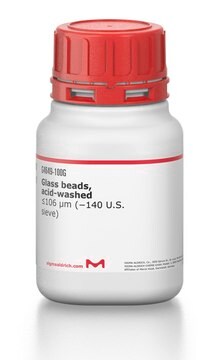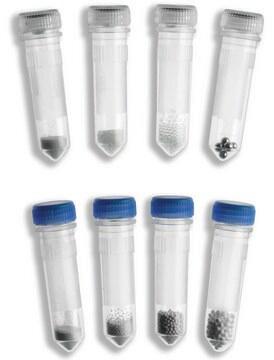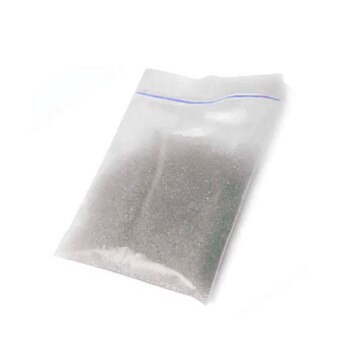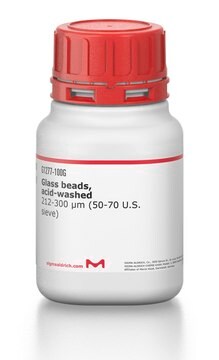Z250473
Glass beads
diam. 1.0 mm, for Beadbeating
Synonym(s):
Laboratory Glass Spheres
Sign Into View Organizational & Contract Pricing
All Photos(1)
About This Item
UNSPSC Code:
12000000
NACRES:
SB.32
packaging
pkg of (net weight 357 g)
diam.
1.0 mm
Looking for similar products? Visit Product Comparison Guide
Application
- Effects of Temperature, Ionic Strength and Humic Acid on the Transport of Graphene Oxide Nanoparticles in Geosynthetic Clay Liner: This study utilizes glass beads to simulate soil environments in the assessment of nanoparticle mobility, providing essential data for environmental safety evaluations (Liu and Jiang, 2024).
- Design of closed loop for reproduction of gas-dominated hydrate flow: Glass beads are employed to create a realistic model of gas hydrate flows, aiding in the design of safer and more efficient energy transport systems (Wada et al., 2024).
- Physicochemical cell disruption of Bacillus sp. for recovery of polyhydroxyalkanoates: Demonstrates the use of glass beads in the mechanical disruption process to optimize the yield of bioplastics, contributing to sustainable materials engineering (Bhat et al., 2024).
Packaging
Glass has a density of 2.5 g/cc and is the most commonly used bead media for ′Beadbeating′. Beads are sold in one pound bottles.
Storage Class Code
11 - Combustible Solids
WGK
nwg
Flash Point(F)
Not applicable
Flash Point(C)
Not applicable
Certificates of Analysis (COA)
Search for Certificates of Analysis (COA) by entering the products Lot/Batch Number. Lot and Batch Numbers can be found on a product’s label following the words ‘Lot’ or ‘Batch’.
Already Own This Product?
Find documentation for the products that you have recently purchased in the Document Library.
Customers Also Viewed
Our team of scientists has experience in all areas of research including Life Science, Material Science, Chemical Synthesis, Chromatography, Analytical and many others.
Contact Technical Service
